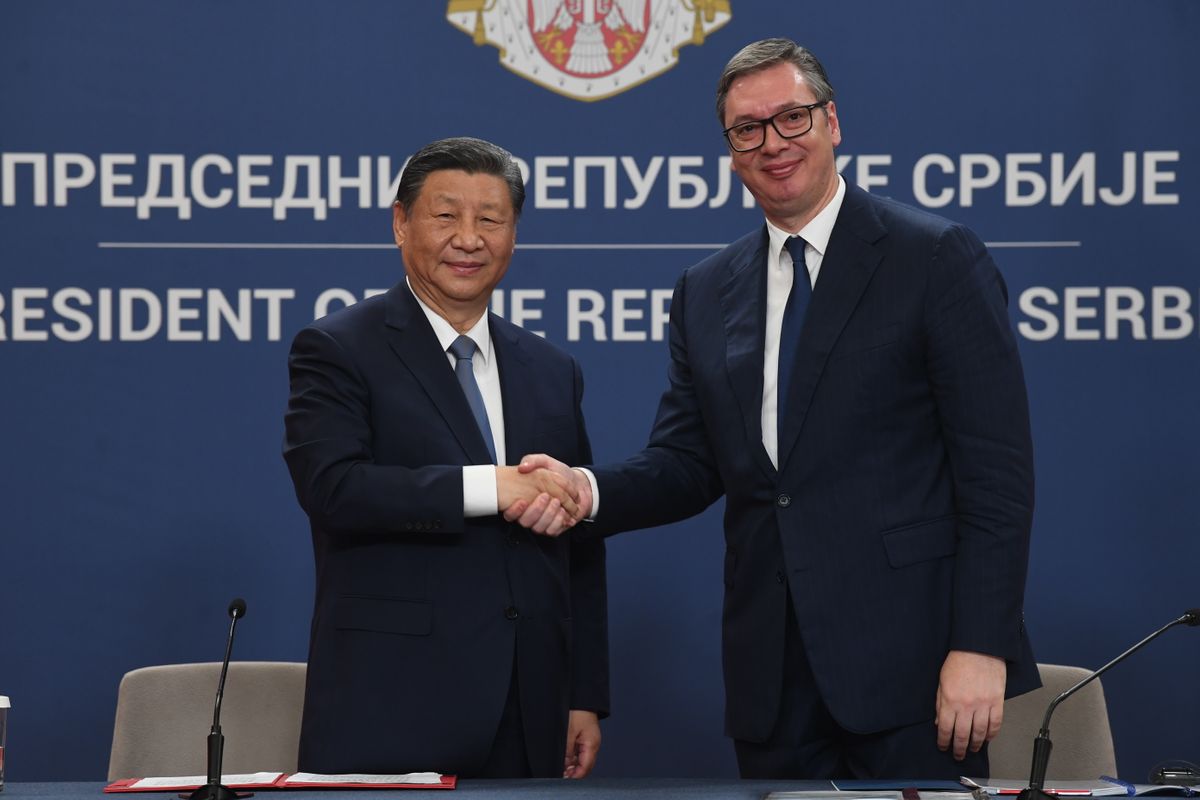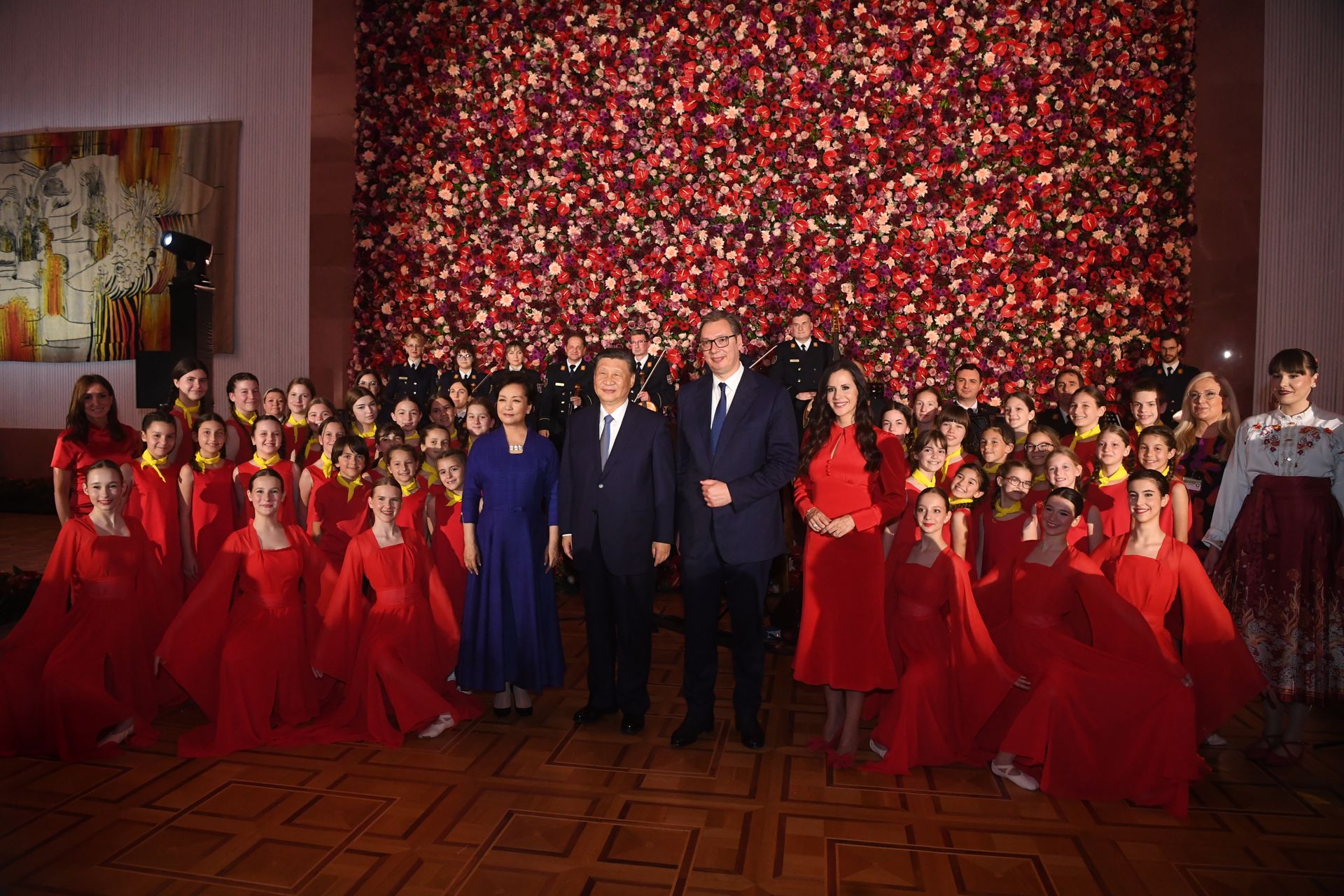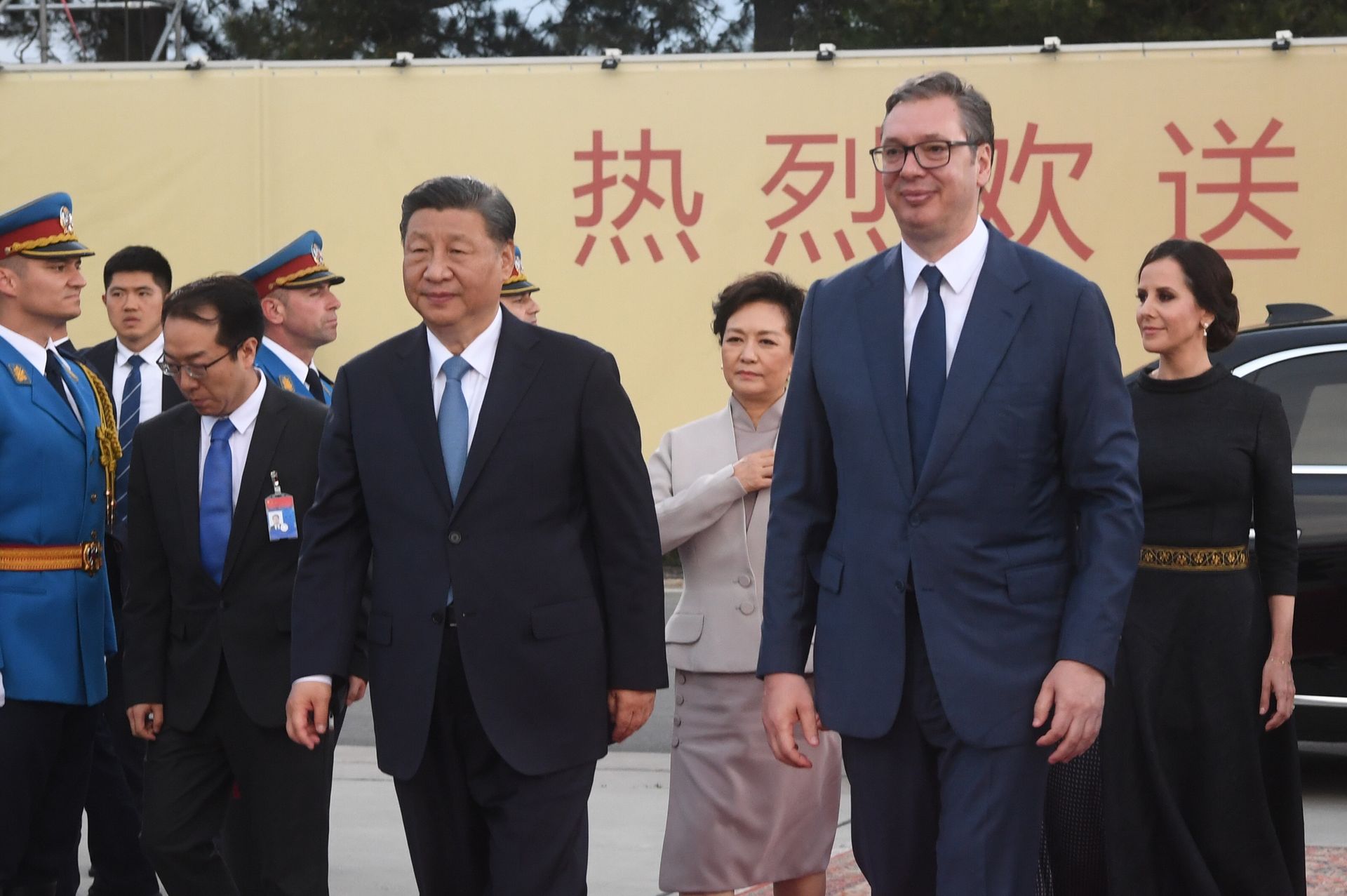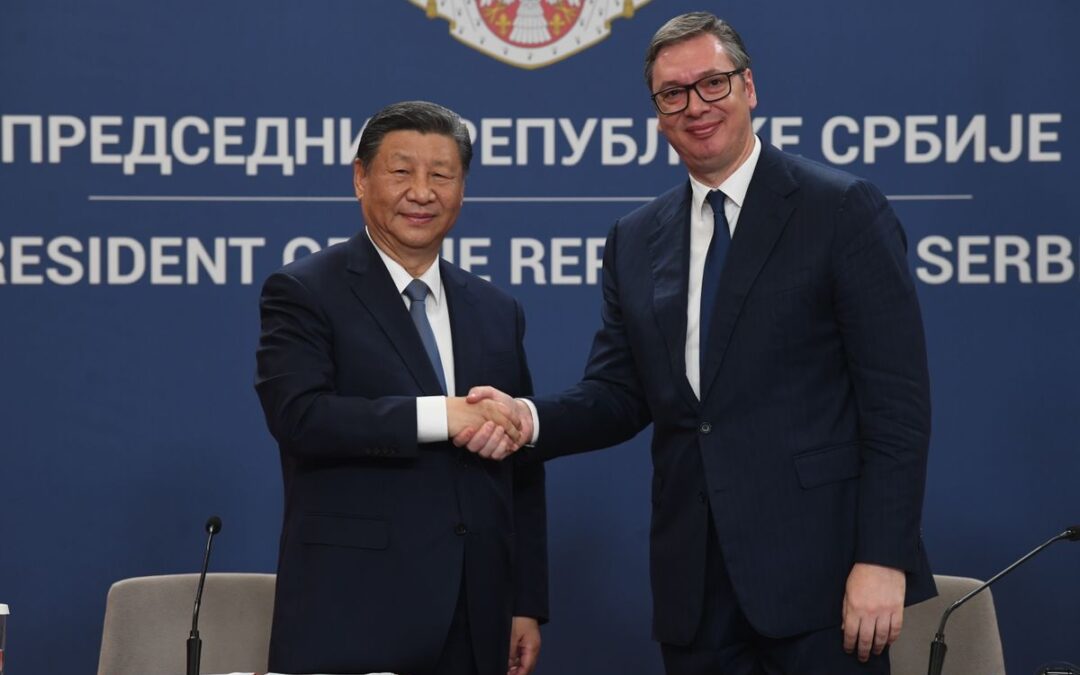OUR BLOG
Decades of Ironclad Friendship between Serbia and China
Formal diplomatic relations were established in 1955, and are based on mutual appreciation, respect for territorial integrity, and strong economic cooperation

President of the Republic of Serbia Aleksandar Vucic and President of the People’s Republic of China, Xi Jinping Foto: predsednik.rs / Председништво Србије / Димитрије Голл
There is a well-known and often used quote by British Prime Minister Lord Palmerston who said that nations have no eternal allies or perpetual enemies, and that only interests are eternal, but the relations between Serbia and China are the exception that proves the rule. Over seven decades of cooperation, firm bonds have been created in almost all areas, from politics and the economy to culture, education, and defence. The relations between the two countries, which are thousands of kilometres apart, are based on mutual appreciation, respect for territorial integrity, and strong economic cooperation. In the words of Chinese President Xi Jinping, ‘The ironclad friendship between Serbia and China has become deeply rooted in the hearts of both peoples.’
However, the path to this partnership was not always easy. Even though Yugoslavia recognised PR China back on 1 October 1949, due the conflict with the USSR and the Cominform countries, formal diplomatic relations were established only six years later, following the normalisation of Yugoslav-Soviet relations when First Secretary of the Communist Party of the Soviet Union Nikita Khrushchev visited Belgrade. Still, the consensus in foreign policy matters was short-lived since in 1958 the relations cooled due to ideological differences. The renewal of the strategic partnership started in mid-1970s, and culminated in the visit of Josip Broz Tito to China in 1977, which was the first visit by a Yugoslav head of state to that country, which was followed by numerous visits of high-level delegations.

Foto: predsednik.rs / Председништво Србије / Димитрије Голл
During the crisis of the 1990s, China abstained from voting for resolutions that were harmful for FR Yugoslavia in the UN Security Council. Diplomatic relations with China were maintained also during the time of the State Union of Serbia and Montenegro, and then between Serbia and China after the dissolution of the last Yugoslav state. In the most difficult moments of recent Serbian history, China has always stood by Serbia as a true friend – showing understanding for the challenges our country was facing, readiness to listen to all the arguments and deliver messages of peace, cooperation, and respect, even when international circumstances were particularly unfavourable.
‘In spite of the fact that we often face pressure from the most powerful global powers, we are fortunate to have had a friend in China at all times’, stated the President of Serbia, Aleksandar Vučić, during last year’s visit of Chinese President Xi Jinping’s to Belgrade.
In the modern geopolitical context, understanding and strong support in matters of key importance for national sovereignty form the foundation for the diplomatic relations between these two countries. Despite the complex international circumstances of today, China remains a loyal friend to Serbia, supporting its territorial integrity, including its stance towards Kosovo and Metohija, while Belgrade offers China its principled support to the ‘One China’ policy. This kind of alliance between two sovereign countries is rare, as it is not based solely on geopolitical and economic interests, but also on traditional friendship, reliable partnership, and a high degree of trust.
The decades of fostering favourable relations have contributed to the thriving of economic cooperation, which is one of the pillars of Serbia and China’s partnership. China today is one of the most important foreign investors in Serbia, and a whole range of major infrastructural and industrial projects have been implemented owing to their capital. The best-known examples include the steel plant in Smederevo, now owned by HBIS Group, the mining and metallurgy complex in Bor owned by Zijin Copper, the Pupin Bridge in Belgrade, and the construction of the high-speed railroad between Belgrade and Budapest, which is one of the most ambitious regional infrastructural projects. These endeavours not only contribute to the economic growth of Serbia, but also connect the country with the wider framework of China’s ‘Belt and Road’ initiative.

Foto: predsednik.rs / Председништво Србије / Димитрије Голл
This is further supported by the growing number of visits of Serbian and Chinese citizens to each other’s countries, stimulated by the visa-free regime introduced in 2016. Serbian entrepreneurs, students, and tourists travel to China more and more often, broadening their horizons, building friendships, and solidifying mutual ties that surpass official diplomacy, whereas the Chinese community in Serbia, though small in number, plays an important role in social life, particularly in Belgrade and its surroundings.
Seven decades of relations between Serbia and China are not just a statistical anniversary, but a testimony to their continuous and reliable partnership. Despite political changes, historical challenges, and global turmoil, the two countries have managed to preserve and develop relations which today rely not only on economic interests, but on a long-term strategic vision as well.
The importance of this partnership that has lasted for decades obviously transcends the borders of the two countries, as confirmed by the Chinese President in his own words:
‘Friends, history has shown us that the friendship between Serbia and China has been forged through our exceptional joint struggle to promote world peace and development. It was forged in the blood and lives of our two peoples. Looking to the future, the building of a shared future for Serbia and China in a new era is a matter of strategic choice.’
Principles of Peace and Respect
The military and technical cooperation between Serbia and China adds a special dimension to the relationship between the two countries and has significantly improved over the previous decade. Serbia has become one of the first European countries to import Chinese air defence systems and modern drones, which attracted international attention. This cooperation is also based on the principles of peace, sovereignty, and mutual respect. Parallel with this, shared cultural connections are also developing, as evidenced by the founding of the Chinese Cultural Centre in Belgrade, student exchanges, joint exhibitions and festivals, all contributing to a better understanding and rapprochement between the two nations, in spite of differences in language, writing, and tradition.








 2018
2018